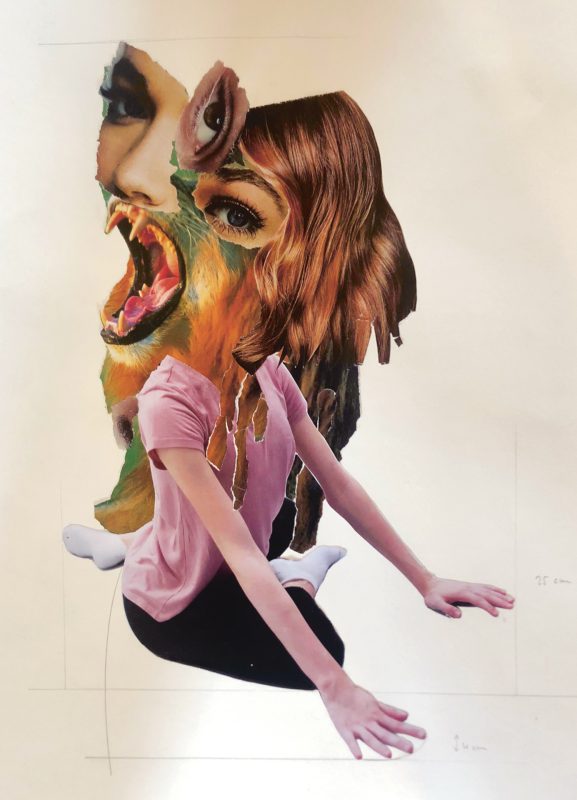
MICKEY IN DER MUSCHEL
I’m Venus is a quote from the film that inspired the work. Why does Mizoguchi Kenji refer to Venus, or more specifically to Sandro Botticelli’s work Birth of Venus (1482–1485), in Akasen Chitai (Engl. Street of Shame, Japan: Daiei Film, 1956), in his last film? Was he paying homage or is it common practice in film to borrow from and respond to the preceding arts? Can intermediality be addressed on the basis of the film plot and in which other sequences does it appear and in what form?
Europeans first settled in Japan as early as the mid-16th century. How did Venus find her way to Japan? What does she embody in a brothel in Tokyo’s red-light district of Yoshiwara? Is Mizoguchi Kenji a feminist filmmaker, and for which audience is this film made?
The German and English film titles are congruent in the sense that both, when read and heard, conjure up a imagery that we perceive individually as familiar. In this associative approach, stereotyping, half-knowledge or ignorance collide. By referencing Botticelli’s Venus, shame is the key concept and common denominator in film and painting.
NÔM NARRATIVE
The point of departure for this work was the epic Đoạn trường tân thanh by Nguyễn Du, which was originally written in the Nôm script.1 Hence the working title NÔM NARRATIVE. Irene and Franz Faber translated the epic into German under the title Das Mädchen Kiêu (1964). I was interested in the representation of women in literature in the transitional period from feudal society to modernity.2
Where are Confucianist values still entwined? Do old poetic forms and images still exist in contemporary Vietnamese society? From which position do I research, consider and interpret literature and theatre? Having grown up in Germany, I view and address things and issues from a European perspective. My conversations with actors from the fields of music, theatre and arts and crafts in Vietnam allowed me to assume other perspectives.
The book with photographs of Vietnamese theatre from around 1973 in Hà Nội by Nguyễn Đình Quang accompanied my meetings with the actors Cao Hồng Ninh, Tô Văn Kỳ, Trương Nguyên Ngã, Bùi Quý Phong and the stage artists in the retirement home for artists in TP Hồ Chí Minh (Vietnam). Since I am a native of Central Vietnam, the discussions concentrated on the Tuồng theatre form in Central Vietnam and the distinctiveness of music in the different regions in Vietnam (North, Central, South).




